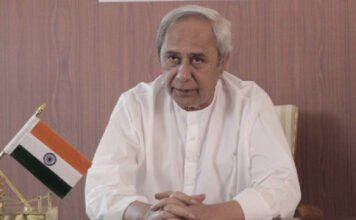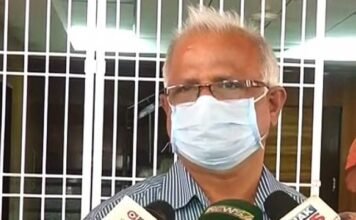New Delhi, Dec 15: The Union Finance Minister Shri Arun Jaitley said that digital transactions are a parallel mechanism, not a substitute, for cash transactions and cashless economy is actually a less cash economy as no economy can be fully cashless. The Finance Minister said that the Government is trying to encourage digitization as much as possible because an excessive cash economy has its own social and economic costs and consequences. He said that less cash can be gradually substituted to the possible extent through digital payments/transactions. He said that the Government has given lot of incentives to the people to shift to digital mode of payment and the response is quite positive in this regard. The Finance Minister Shri Jaitley was making his Opening Remarks at the 5th Meeting of the Consultative Committee attached to the Ministry of Finance. The subject of today’s meeting was “Shift to Digital Transactions”.
The Union Finance Minister Shri Arun Jaitley further said that Government and the RBI have taken various steps to bring down the cost of digital transactions. He specifically mentioned about the MDR charges which have been brought down significantly in case of transactions up to Rs.2,000 made through debit cards i.e. 0.25% in case of transactions below Rs. 1000 and 0.50% in case of transactions between Rs. 1,000 to Rs. 2,000. The Finance Minister mentioned that incentives announced by the Government last week relating to discount of 0.75% in case of purchase of petrol/diesel through digital payment has shown a very encouraging response by the people by and large. The Central Government Petroleum PSUs/Oil Marketing Government Companies were asked by the Government to give incentive by offering a discount at the rate of 0.75% of the sale price to consumers on purchase of petrol/diesel if payment is made through digital means. The Finance Minister said that today 55 percent petrol pumps in the country are accepting payment in digital mode and force of circumstances and incentives is causing a movement in digital direction. After 2nd December, 2016 when the acceptance of old Rs. 500 notes was withdrawn at petrol pumps, 52% of the payments are made by the digital mode. The Finance Minister said that Government is conscious of the need of the cyber security of high level to secure digital payments. He said that the Government and RBI are fully aware of cyber security challenges in the move and ensuring strong firewalls around the systems. Keeping in mind that Indian consumer is cost conscious, the Finance Minister said that the Government is providing various incentives for digital transactions including debit card use. Regarding the availability of POS machines, the Finance Minister Shri Jaitley said that POS machines are manufactured by two companies in China and the Government has waved off duties on them so that these machines become cheaper and reach the shopkeepers easily.
Earlier, a presentation detailing about various steps taken by Government so far to encourage digitization. Presentation also talked about various challenges inherent in this move e.g. possibility of cyber crime, low digital literacy and lack of infrastructure in remote areas. It also listed the steps taken to address these challenges e.g. promoting digital literacy at grass root level, extensive use of Business Correspondents and Gramin Dak Sevaks in rural areas both to deliver and create an awareness and sensitize people at large, and organisation of mock drills by CERT-IN which is India’s nodal cyber security agency.
After the presentation, members expressed their views candidly. One member cited the example of Bangladesh Bank heist and expressed the concern about cyber security if digitization is done at such a fast pace. Then issue of virtual currency, bit coins was also raised as bit coins are believed to be used by black money hoarders. Regarding connectivity and infrastructure issue in rural India, suggestions were made to strengthen the institution of Business Correspondents. Some Members raised the concern that Aadhar alone should not be basis for bank transactions and banks should keep their KYC norms strict along with Aadhar. Also members requested the Finance Minister to relax conditions for Tamil Nadu as recent cyclone has caused major disruptions in supply of electricity and internet connectivity.
Many members of the Consultative Committee appreciated the initiatives taken by the Government to incentivise digital mode of payment and specifically mentioned about 0.75% discount given by the oil marketing companies. Some suggestions included that infrastructure for having internet facility on continuous /permanent basis, without any disruption, has to be ensured for making digital payments successful especially in sub-urban and rural areas. Besides it, there is need to create good IT infrastructure for high speed internet and fibre based technology so that digital payments can be made without any interruption and in an expedient and safe manner.
Some members suggested that security measures are required both in case of hardware and software in order to secure the data and the transactions made through digital mode. The members said that there is a need to launch a campaign to create awareness among the people at large about the methodology, procedure and benefits of making payments through digital mode. The KYC norms have also to be made strict so that identity of the person making digital transaction is ensured and there is no misuse of the same. Some members suggested that there should be strong safety walls to avoid hacking of the data and system by certain individuals/companies involved in this exercise. The Members asked that the banks should have strong cyber security framework and should organise workshops etc to sensitise their customers about the digital transactions as well as the safety precautions to be followed in case of digital transactions among others.
The Finance Minister Shri Jaitley assured the Members of the Committee about cyber security measures being taken by the banks under RBI supervision. He said that Government was trying its best to minimize common man’s pain.
Along with the Union Finance Minister, Shri Arun Jaitley, the Meeting was also attended by both the Ministers of State for Finance Shri Santosh Kumar Gangwar and Shri Arjun Ram Meghwal, Shri Ashok Lavasa, Finance Secretary, Shri Shaktikanta Das, Secretary, DEA, Dr. Hasmukh Adhia, Revenue Secretary, Shri Neeraj Kumar Gupta, Secretary, DIPAM and other senior officers of the Ministry of Finance among others.
Among the Members who attended the Consultative Committee Meeting include, Shri Baijayanta Jai Panda, Shri Dilip Kumar Mansukhlal Gandhi, Shri Ram Charitra Nishad, Shri Subhash Chandra Baheria, Smt. Supriya Sadanand Sule, Smt. Poonam Mahajan, Shri Sharadkumar Maruti Bansode and Shri Suresh Chanabassappa Angadi (all Members of Lok Sabha); Shri Digvijaya Singh, Shri Rajeev Chandrasekhar, Shri Ranvijay Singh Judev, Shri Sanjay Seth, Shri Satish Chandra Mishra and Kumari Selja (all Members of Rajya Sabha) .
Source: PIB

























